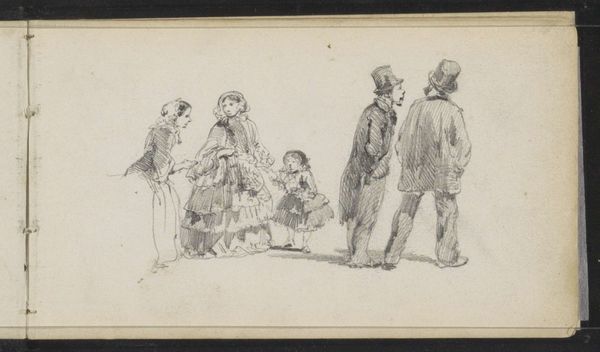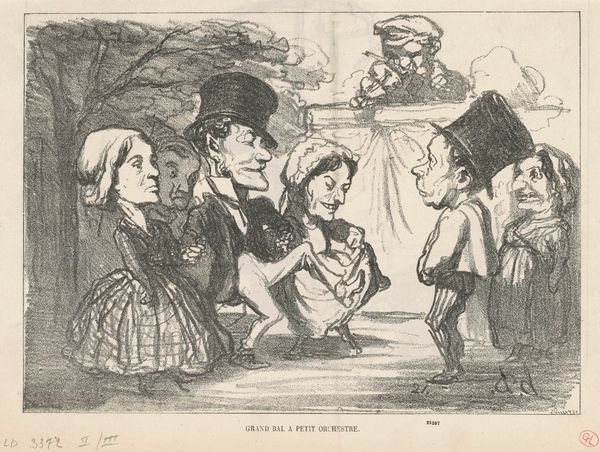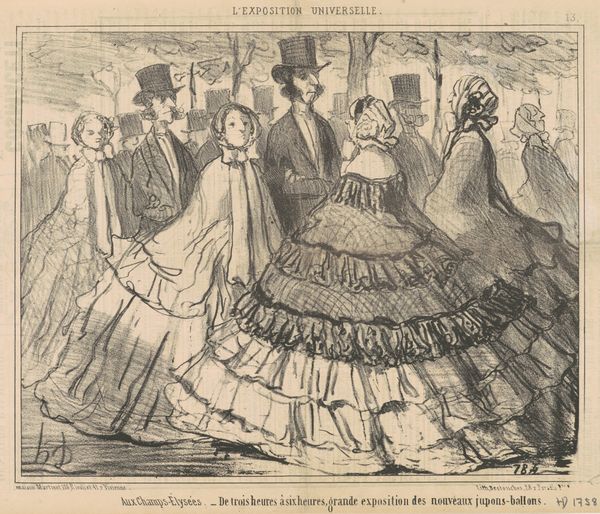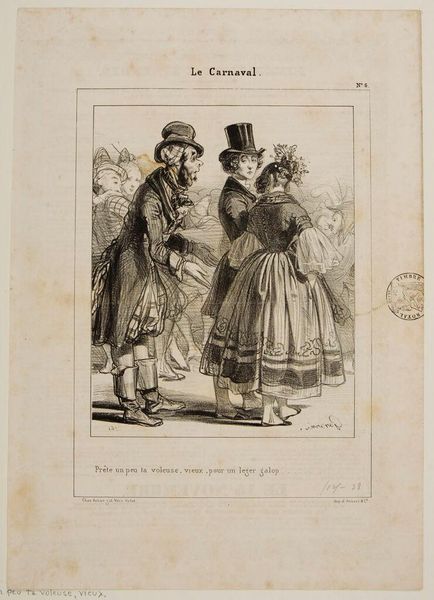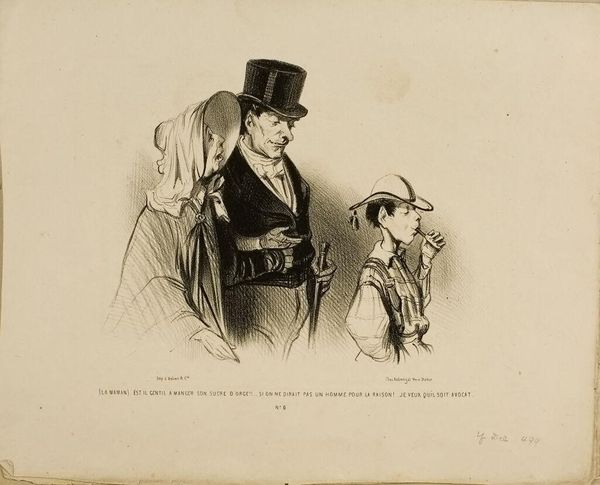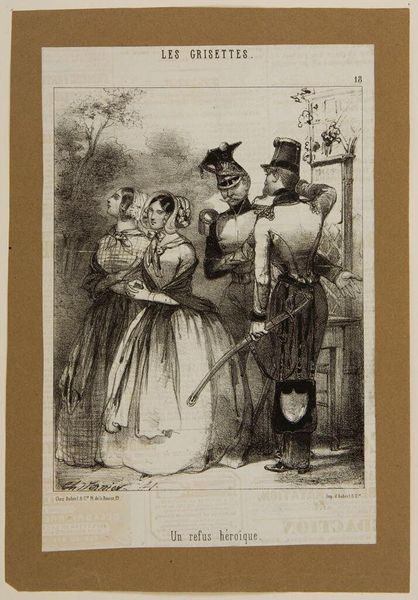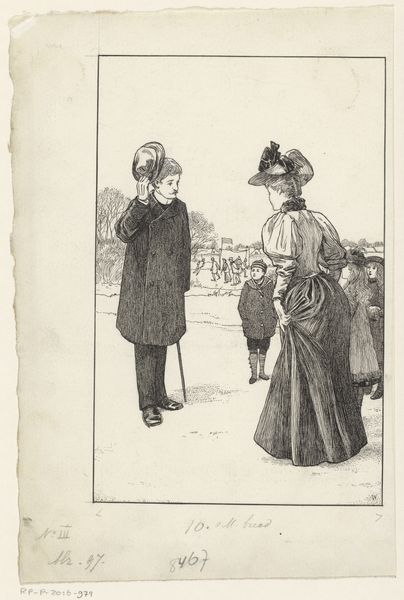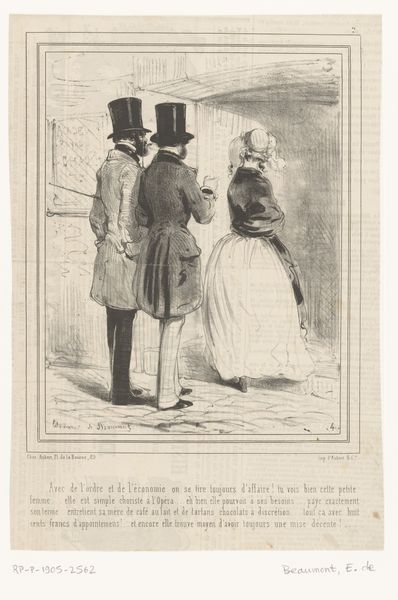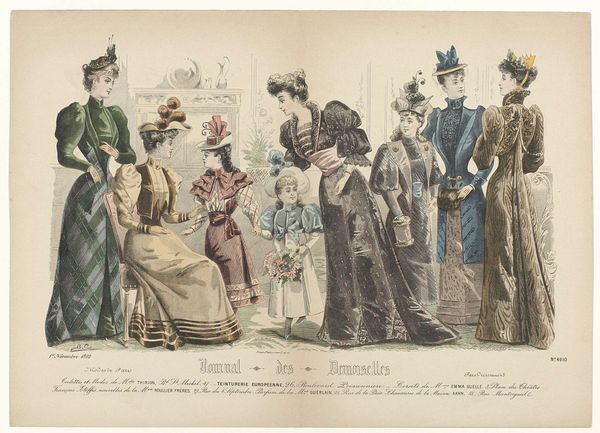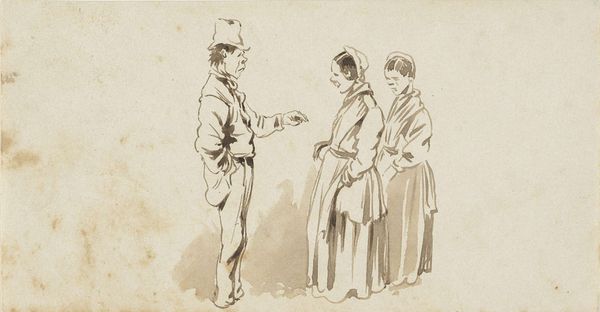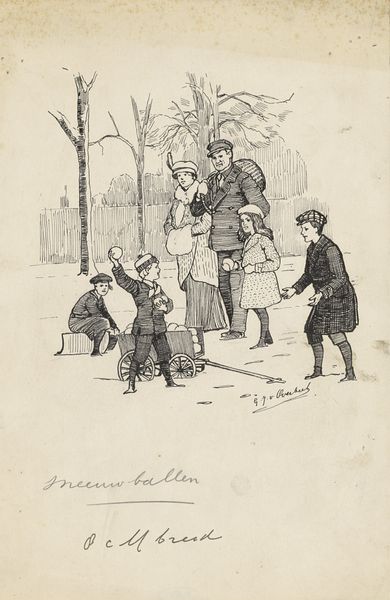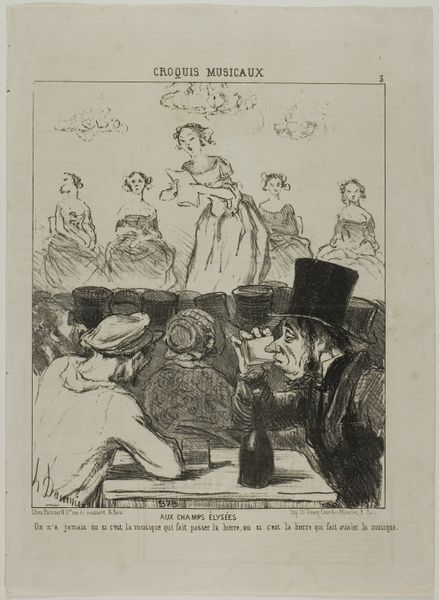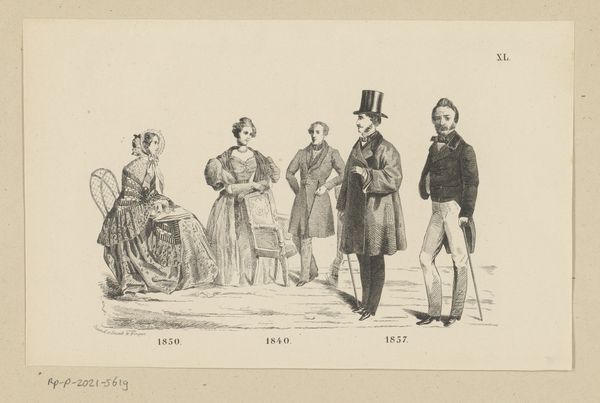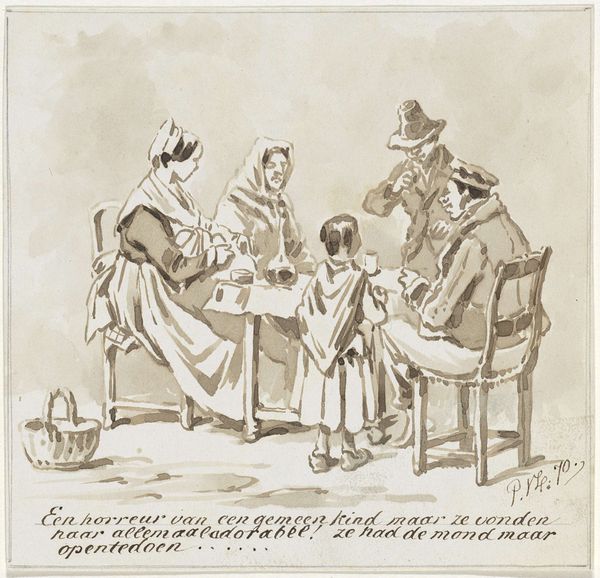
drawing, paper, ink, pen
#
drawing
#
imaginative character sketch
#
quirky sketch
#
narrative-art
#
pencil sketch
#
incomplete sketchy
#
landscape
#
figuration
#
paper
#
personal sketchbook
#
ink
#
sketchwork
#
romanticism
#
pen-ink sketch
#
sketchbook drawing
#
pen
#
genre-painting
#
sketchbook art
#
fantasy sketch
Dimensions: height 93 mm, width 151 mm
Copyright: Rijks Museum: Open Domain
Curator: Welcome. Before us is "Gezelschap in een park," which translates to "Company in a Park," a drawing rendered in ink and pen on paper attributed to Pieter van Loon, active between 1811 and 1873. It's currently held here at the Rijksmuseum. Editor: It has such an immediate, almost whimsical feel to it. There's a wonderful sense of motion despite its static nature. The subtle use of line variation creates a complex interplay of forms. Curator: The sketch-like quality immediately speaks to the artist's hand and labor. You see the hatching, the visible process—nothing concealed. It’s interesting to consider Van Loon’s process; one wonders if he sketched from life or if these are imagined figures, conceived solely within the studio space. Editor: Consider how Van Loon directs our gaze with that strategic layering, though. The figures in the foreground, meticulously rendered with distinct outlines, subtly transition into almost ghostly suggestions in the background. This echoes certain principles evident in Romanticism: emotion is primary, rationalized perspective less so. Curator: I find the clothing fascinating. The stark lines denoting folds in fabric and the deliberate lack of attention to the faces of the characters give them all the same significance. It speaks to the rapid pace of material exchange at this time and also what seems to be rapid obsolescence in clothing that seems strangely modern despite its origin over 100 years ago. Editor: Perhaps we are seeing here a pre-cinematic "tableau vivant"—the visual composition mimicking the staged drama. The relationships between the figures generate narrative possibilities. Is that boy separated from his family, or simply not listening to his mother? Van Loon invites the viewer to actively participate in crafting their own account of the situation. Curator: Indeed. Van Loon invites an opening. As our analysis here concludes, we might consider, after our observation and exchange, the dialogue enacted here both materially and in the representational framework that constitutes an artwork in itself. Editor: Exactly! Let's close by appreciating the drawing's openness. It seems a study, raw with potential, resisting a fixed reading.
Comments
No comments
Be the first to comment and join the conversation on the ultimate creative platform.
